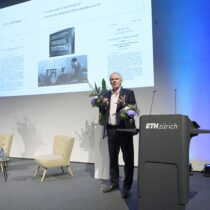From Farm to Fork: A Sustainable Approach to Eating
July 13, 2023Zurich has always had the air of a town where many of the locals are spoiled, myself included. Pint-sized with slightly under 450,000 residents, our little city is more international village than metropolis. But with access to all the perks: well-paying jobs, a proper work-life balance, cuisines from all over the globe, lush parks, a wide range of social benefits and cultural offerings – and high-ranking universities, with ETH among the top ten in the world in 2022. Where else can you get up-close access to prominent speakers from science, culture, politics and business in an auditorium that seats just 422 people?
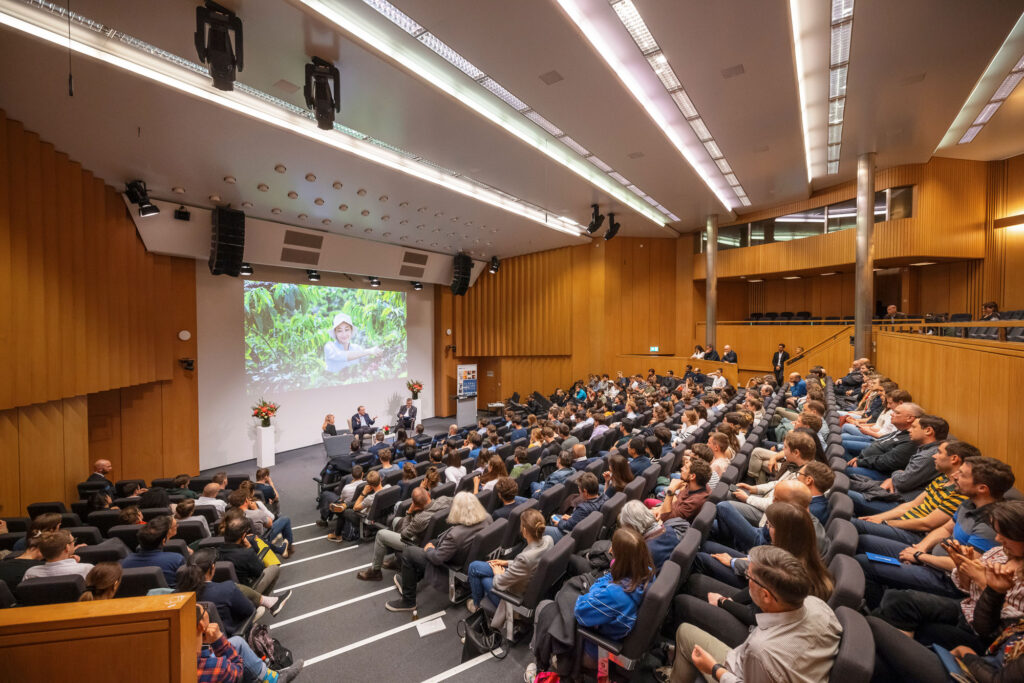
And so I recently found myself at the ETH Global Lecture From Farm to Fork: A Sustainable Approach to Eating, just a few metres away from Nestlé CEO Mark Schneider.
How do we make sure that what we eat is both healthier and more socially & environmentally sustainable? This was the question posed to Nestlé SA in the form of its CEO. Based on Schneider’s opening talk – personal health is driven by what we eat, bringing down the level of greenhouse gasses is imperative for our environment – a discussion followed on how the multinational food and drink conglomerate is developing possible solutions, and which ones it already has in effect.
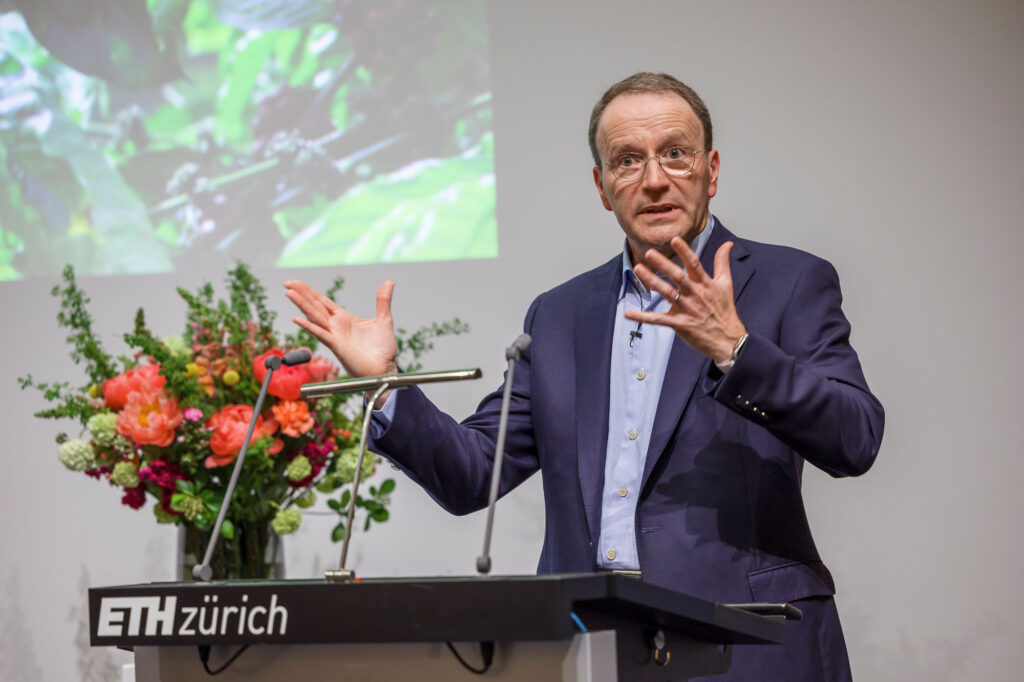
Host Chris Luebkeman from ETH’s Strategic Foresight Hub fielded questions from the audience, and Eva-Maria Meemken, Assistant Professor and Group Leader of ETH’s Food Systems, Economics and Policy Group, offered some balanced criticism and questions of her own.
In terms of nutrition, while Mark Schneider reports that Nestlé has been reducing the salt, sugar and saturated fats in its “enjoyment products” – that’s things like chocolate bars, ice cream and salty snacks to you and me – he would like us to consume responsibly, making informed choices. Nestlé’s approach to enabling a better diet is in providing nutritional guidance such as Nutri-Score labels on food packaging and Health Star ratings in annual reports. Kicked-off in 2014 based on a joint Australia/New Zealand government initiative, HSR ratings go from 1 to 5, with food earning 3.5 stars or more considered “healthy”. In its own 2022 Sustainability Report, Nestlé indicates that only 37% of its food products has an HSR rating of more than 3.5 stars.
So why is Schneider not overly worried about this? Because, as he points out, the kinds of edible rewards Nestlé produces are not meant to be staples. And he wants us to be fair when we make a choice between packaged Nestlé desserts and home or bakery-made confections. “The (nutritional) difference is not great,” Schneider says. “Don’t hold us to a higher standard.” He makes its clear we should own up to knowing what we’re doing when we choose between, say, a vitamin-rich green salad and a package of Smarties.
Schneider also spoke of near-future innovations in blood testing, which will make it possible to instantly determine which nutrients a person needs at a given point in time. With Nestlé then supplying the food products that person can buy to balance out their immediate dietary requirements.
And what about CO2 reduction? Given that agriculture is responsible for about 25-30% (depending on the study) of greenhouse gases, Schneider says, Nestlé initiated a de-carbonisation plan in 2019 according to the Science-Based Targets Initiative. The aim of the plan is to reduce Nestlé’s carbon footprint by 20% in 2025, and 50% by 2030 – a goal that Schneider says is well on the way to being reached, also thanks to its work with the farmers who grow the crops that go into Nestlé’s product portfolio. Given that the number of these farms is somewhere in the range of 600,000 to 700,000 – a figure so vast that Schneider himself couldn’t pinpoint it precisely – the task of trying to save the planet from overheating is a great challenge.
ETH’s Eva-Maria Meemken researches on how to reduce the social footprint of food systems, focusing on hired labour and lower income nations. She raised the point that the food we eat is not just bad for our health and our climate, but also for the health of those who produce it for us, for example.
Meemken remarked on the many trade-offs between environmental and social goals. With changes in dietary patterns especially in high-incomes regions, people are asking for different foods, and they want them to be sustainably sourced. The effect on the rest of the world cannot be ignored, she observed. The process should not hurt the environment nor those along the supply chain, and as a result discussions are ongoing on topics like supply chain laws and due diligence legislation in an attempt to mitigate inequality in this area. But – as with so many other issues at the heart of environmental and social crises, it’s not happening fast enough. There are “so many challenges,” Meemken says.
Just one of these is inherent in Nestlé’s future blood testing for nutrients. “Who will benefit from innovations that make people healthier?” asks Meemken. “Who can afford them?”
Mark Schneider’s answer is that Nestlé will make things affordable, but allow for “elite projects”, which will trickle down. Just as premium cars resulted in cheap ones, he says, expensive plant-based chicken substitutes should result in more affordable options.
As the temperamental delivery of questions posed by a few audience members illustrated, these globally existential issues are complicated to say the least. And as both Schneider and Meemken agreed, it really is an ongoing challenge.
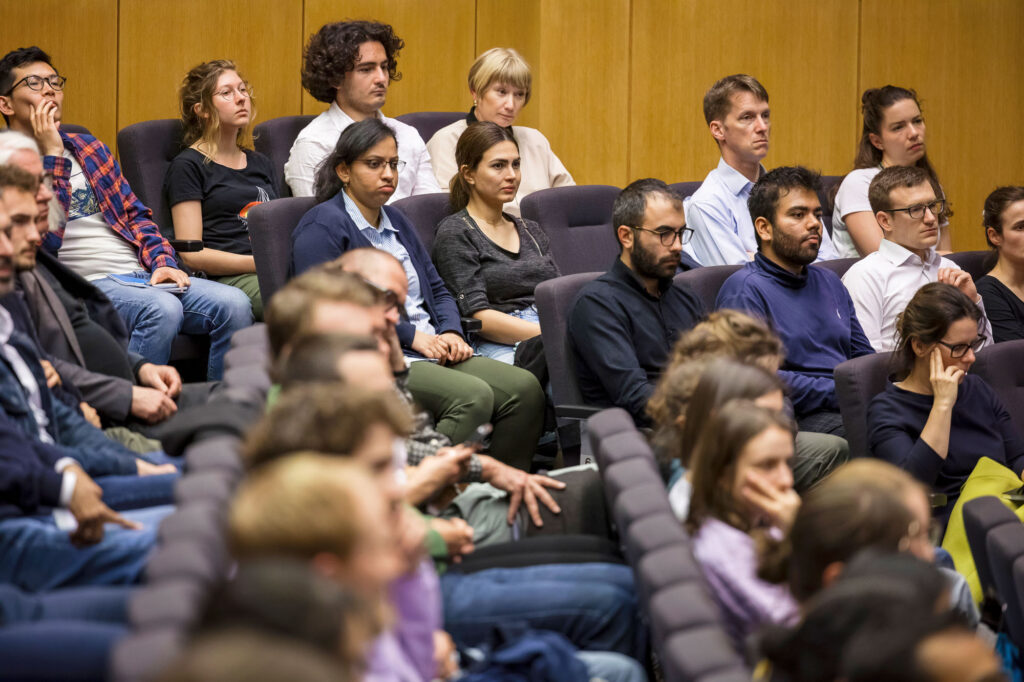
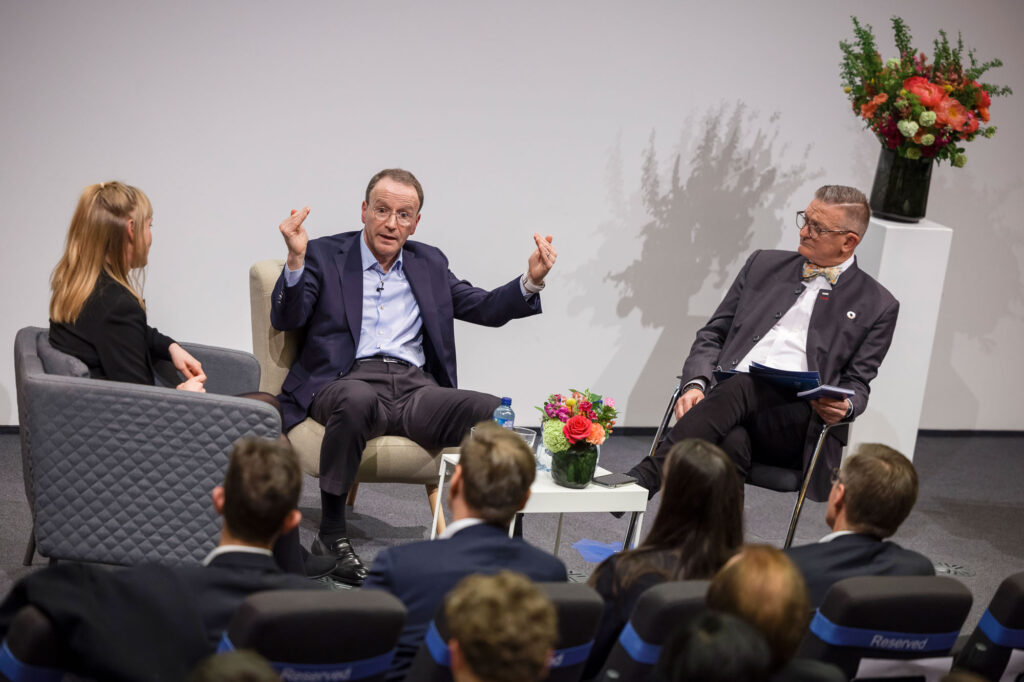
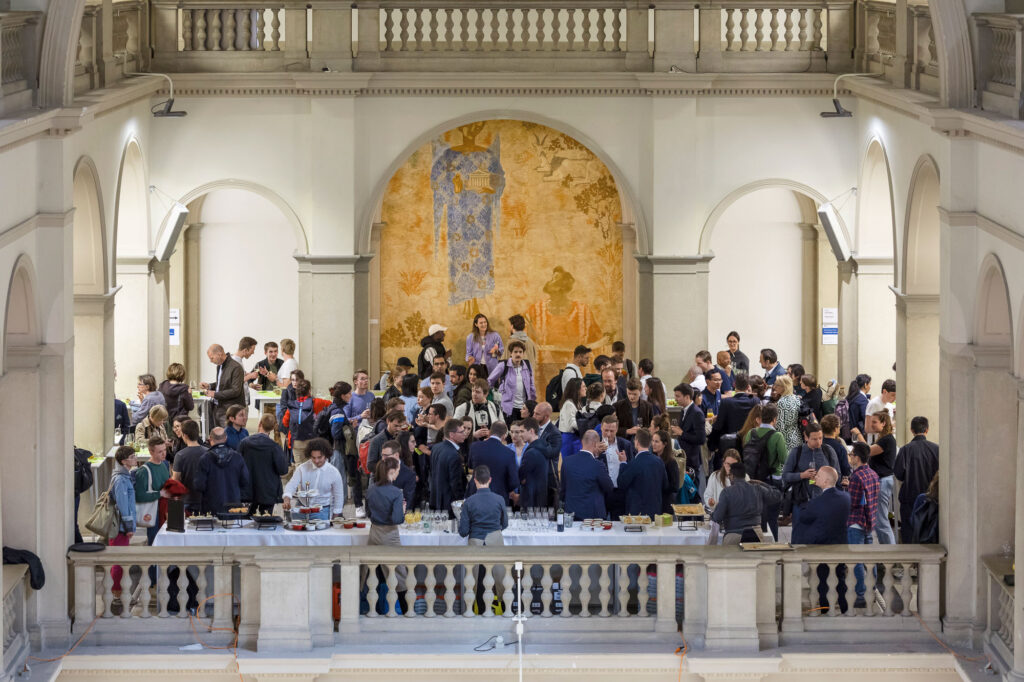
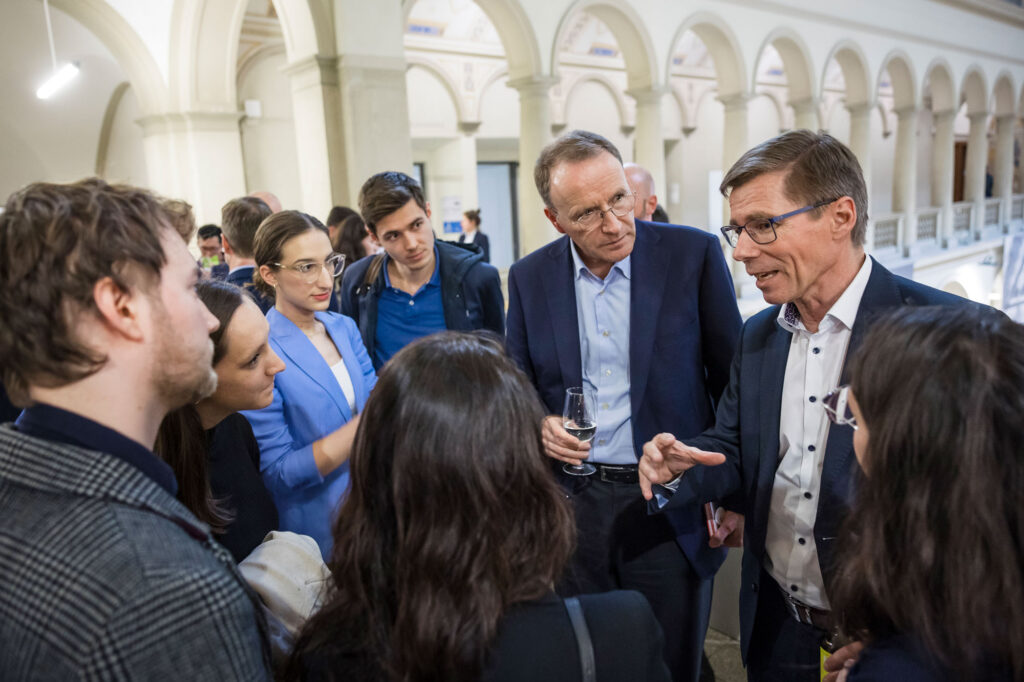
Watch the full recording here:
Find out more about the ETH Global Lecture Series here.




